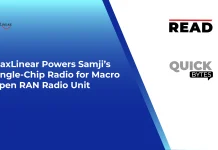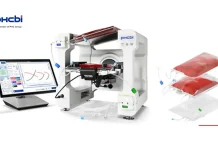Ionis Pharmaceuticals, Inc. (Nasdaq: IONS) announced that its partner, Roche, is designing a new Phase 2 trial to evaluate tominersen in Huntington’s disease (HD). After halting dosing in the Phase 3 GENERATION HD1 study, exploratory post-hoc analyses suggest tominersen may benefit younger adult patients with lower disease burden. These results require confirmation in a randomized, placebo-controlled study.
Also Read: Sciwind Biosciences Begins Phase 2b Clinical Trial Of Obesity Drug Candidate
“These findings are promising and warrant a new study designed to test tominersen in this specific patient group. We are pleased that Roche has determined that there is a path to advance the tominersen development program,” said C. Frank Bennett, Ph.D., Ionis’ executive vice president, chief scientific officer and franchise leader for neurological programs. “This is an encouraging development for the HD community. We and Roche are grateful to the HD community’s continued partnership, which has led to these important insights and a new scientific hypothesis.”
Roche is in the early stages of designing the Phase 2 clinical trial to explore different doses of tominersen in a younger adult patient population with less disease burden. Roche will share further details about the design of the new Phase 2 trial at future scientific meetings. Beginning with the scientific community on Jan. 20, 2022, Roche will participate in a series of webinars to discuss the findings from their post-hoc analysis of the GENERATION HD1 study data and next steps for the tominersen program.
About tominersen and the clinical trials
Tominersen, previously IONIS-HTTRx or RG6042, is an investigational antisense medicine designed to reduce the production of all forms of the huntingtin protein (HTT), including its mutated variant, mHTT. In December 2017, Roche licensed the investigational medicine from Ionis. The tominersen clinical development program included the following studies:
GENERATION HD1: a randomized, multicenter, double-blind, placebo-controlled Phase 3 clinical study evaluating the efficacy and safety of treatment with tominersen in people with manifest HD over 25 months. Study participants were randomized to either 120 mg every two months or 120 mg every four months with intrathecal injections of tominersen, or placebo. The study recruited 791 participants from 18 countries around the world. In March 2021, Roche announced that dosing would be stopped in the tominersen Phase 3 GENERATION HD1 study following a recommendation from the independent data monitoring committee (iDMC) based on an overall benefit/risk assessment. The study is ongoing without dosing to allow participants to be followed for safety and clinical outcomes. The study will complete at the last-patient last-visit, as planned in March/April 2022.
GEN-EXTEND: an open label extension study for participants coming from any Roche HD study. Participants received 120 mg tominersen every two months or every four months in the study. The study is ongoing without dosing to allow participants to be followed for safety and clinical outcomes. The study will complete in March/April 2022.
GEN-PEAK: a Phase I study aiming to better understand the pharmacokinetics of tominersen and how tominersen affects mHTT levels and other markers in the spinal fluid and blood, which studies different doses of tominersen over two administrations. The study will now be completed as all patients have completed Part 1 of the study and Part 2 will not be conducted.
Study participants should contact their local clinical trial site for questions or support about their situation.
About Huntington’s disease
Huntington’s disease is a rare genetic, progressive condition that causes the nerve cells in the brain to break down, causing problems with a person’s ability to think, move and function, leading to increasing disability and loss of independence. It has a devastating impact on people living with the disease, and the hereditary nature of HD means it profoundly affects entire families for generations. Survival ranges from approximately 10-20 years following motor onset of the disease. There is no known cure for HD and no approved therapies that treat the underlying cause.
About Ionis’ Neurology Franchise
The Ionis neurology franchise addresses all major brain regions and central nervous system types, currently has three medicines in Phase 3 studies and 12 medicines in clinical development of which three are wholly owned. Ionis is leading the way in treating the root causes of many neurological diseases and developing antisense medicines for common diseases, like Alzheimer’s and Parkinson’s, rare diseases like ALS, Huntington’s disease, and Alexander disease. Ionis’ marketed neurological disease medicines include SPINRAZA®, the global foundation of care for spinal muscular atrophy (SMA), and TEGSEDI®, the first and only self-administered, subcutaneous treatment for the polyneuropathy of hereditary ATTR amyloidosis in adults.






